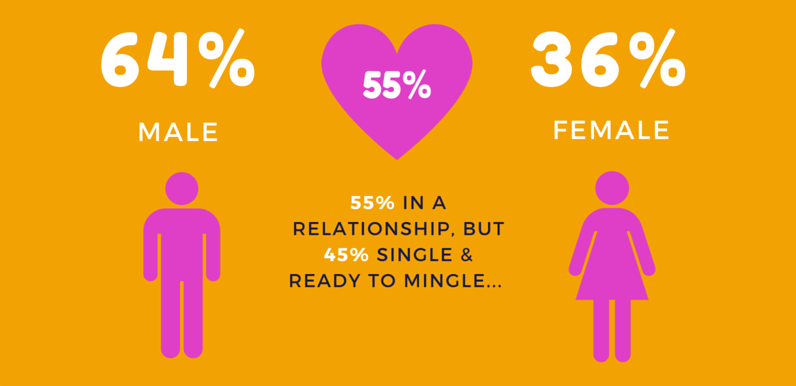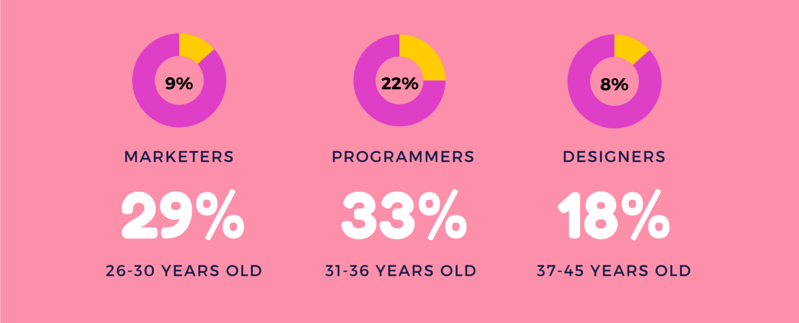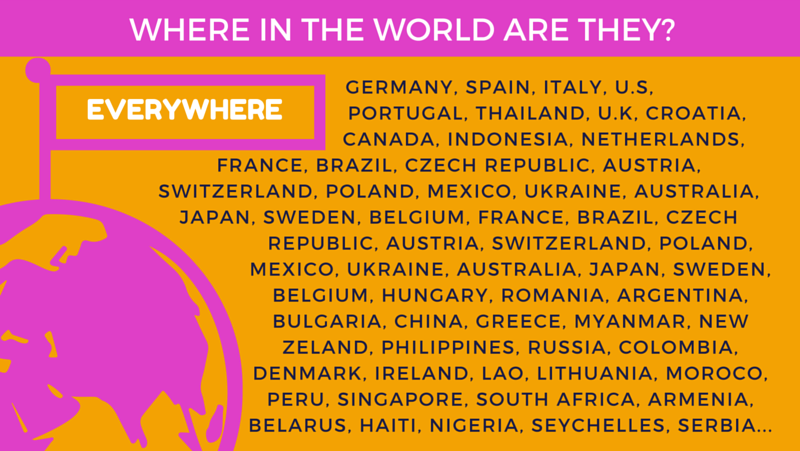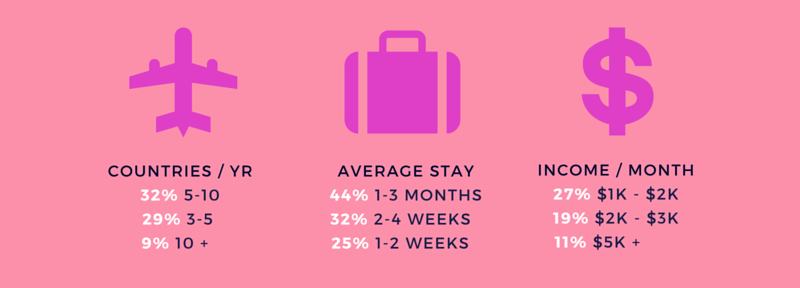We did it together with some of most awesome Digital Nomad services out there: ShareDesk, Copass, Coconat, Teleport, Kumbayja & Sun & Co (to name a few). We called it the ‘Digital Nomad Survey’ - 10 points for originality.
With over 500 respondents based all over the world & a huge amount of dedication to our survey (it was 60 questions long)! The results will surprise you.
What do you think the average profile of a Digital Nomad is?
Your Answer might be: A young single male backpacker prepared to travel to the furthest outreaches of the world provided there’s internet.
The Data-based Answer: Not quite...

GENDER: They’re mostly male (although there was only a small percentage difference between our respondents).
RELATIONSHIP STATUS: The majority of our respondents were in a relationship at the time of our survey (55%) - although that does leave a healthy 45% for those of you interested…

PROFESSION: Well, in this case people’s assumptions tend to be about right. There are a lot of programmers out there 22% and also 17% online marketers & designers. But did you know they’re also doing jobs like being DJs, Stock-traders & Film Producers?
AGE: They’re probably a little older than you thought, 33% in their 30s (31-36) & 29% in their later twenties (26-30). Surprisingly 18% of them were within the 37-45 age bracket.

LOCATION: The answer is, they’re bloody everywhere! Taking into account that our survey was widely distributed within our own networks (a German & Italian network of programmers) and with a whole host of coworking and coliving partners (with contacts in Germany and wider Europe), our data (perhaps unsurprisingly) tells us many respondents were in Germany & Italy.
The most likely interpretation of the data is that most Digital Nomads at the time of our survey where in Spain and that the second largest majority were in the US. What we can be sure of is that had hundreds of respondents told us they were all over the world; in Indonesia, Armenia, Nigeria & even Haiti. Where there’s wifi there truly is a dream!
NOMADIC STATUS: Interestingly, the majority of our respondents told us they stayed in places for months on end, with most maintaining a medium-to-fixed ‘base’ to come home to regularly. So they’re not necessarily 100% nomadic, with many settling for 1-3 months in each destination, but there was also a healthy 9% that visited over 10 different countries over a 12 month period.

Our trend predictions:
Judging by the data provided by our respondents, there are clearly a growing group of individuals who truly believe in a more fulfilling work-life balance with 85% telling us they were very happy with their decision to be location-independent and many of them self identifying with the term ‘digital nomad’. Evidently for this group a lifestyle that enables you to experience the world and to take gambles, trumps gainful and stable employment.
But we also believe that although the ‘Digital Nomad’ label is being hailed as the next big thing, our data shows us that the ‘next big thing’ will likely be a mainstream shift towards location-independent remote working, whether freelance or not, nomadically digital or not.
Employees will work from home, or coworking spaces, maybe even coliving spaces in Bali. They’ll take control of their working days. Perhaps they’ll choose to travel the globe. Perhaps they’ll continue to work full days whilst travelling to new and exotic places. Perhaps they’ll spend more time with their families, or even decide to live a more wholesome life in the countryside. What we’re certain of is that they’ll be able to do all of this without sacrificing their careers! They’ll simply bring their careers with them.
We predict entirely remote working teams to become the norm, like us. Where people with fixed jobs & freelancers will be equally empowered, with better employment rights and state support for their efforts. In fact - we don’t even need to predict it, it’s already happened, companies such as Buffer & Pictokart are already 100% remote (with no physical headquarters at all), and it’s working for them.
We predict a tectonic shift in employment patterns towards a more remote world, with more remote experiences waiting for us all.
Full infographic: First Impressions of The Digital Nomad Survey